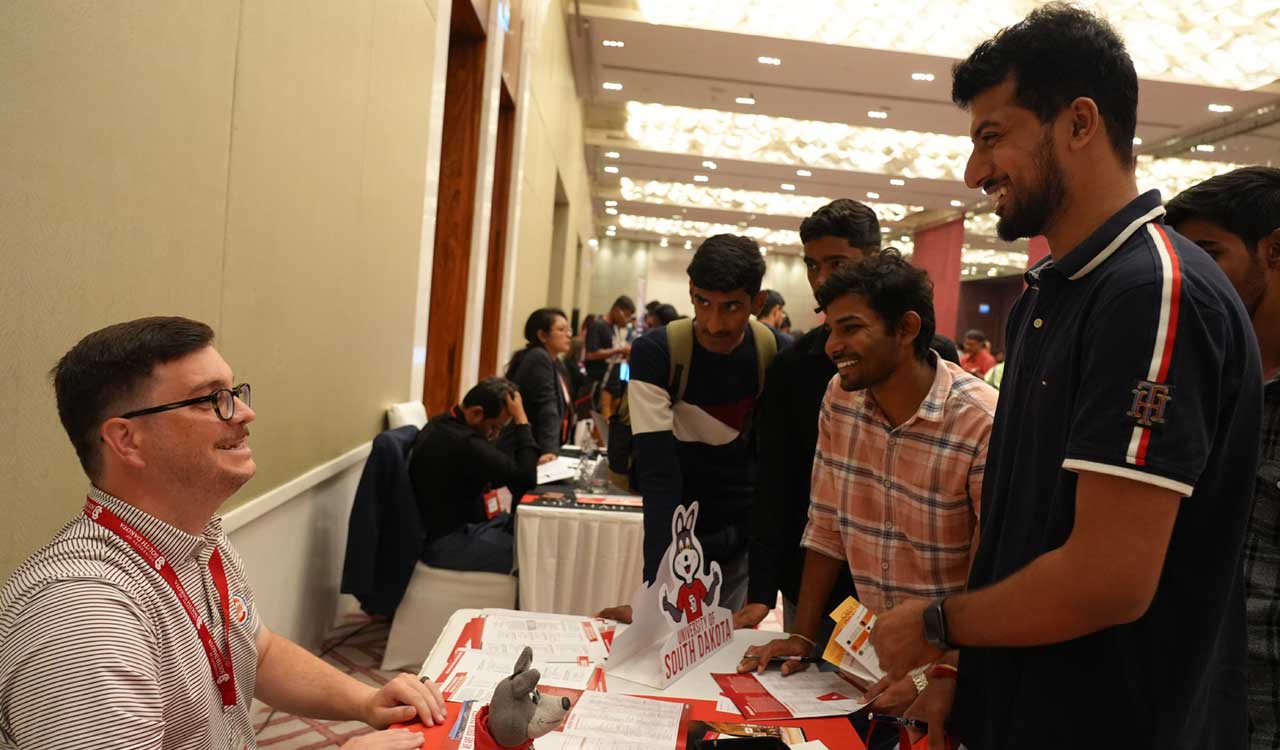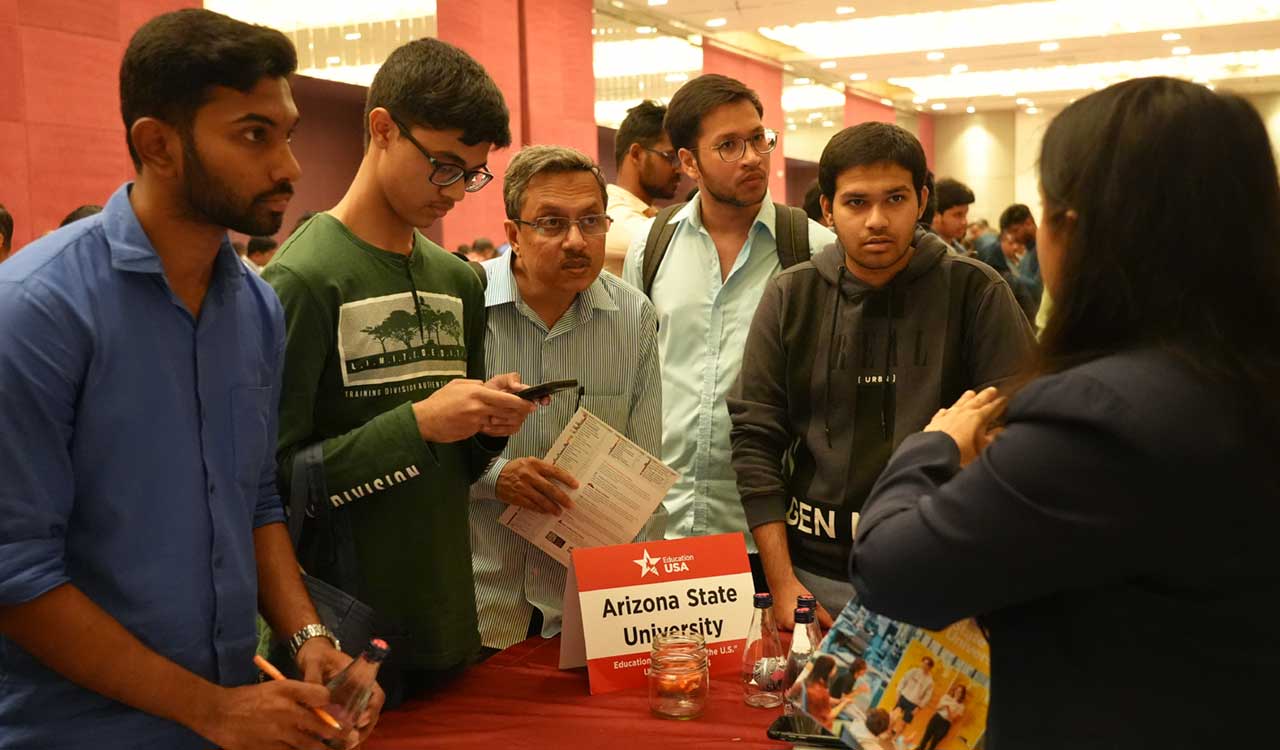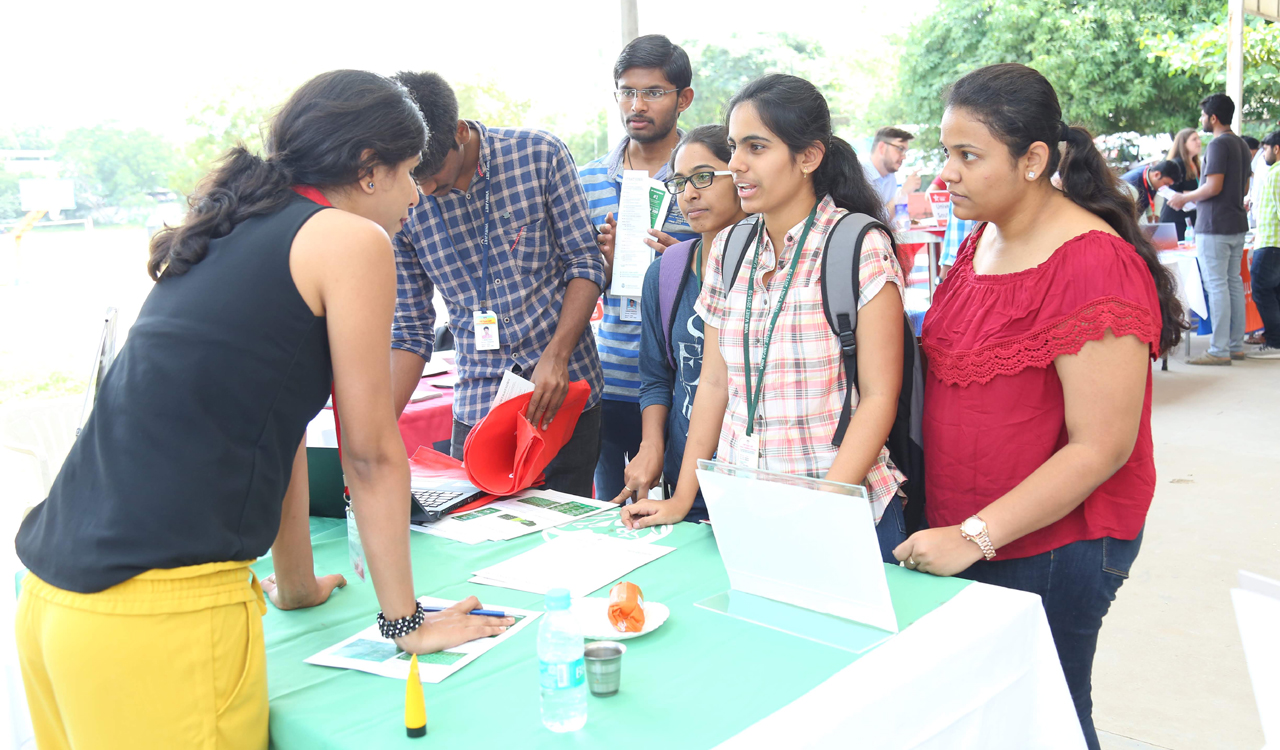Boosting Your U.S. College Application: Significance of Extracurricular Activities for International Students
Extracurricular involvement provides a window into a student's character, interests, leadership abilities, and commitment to their community. For international students, showcasing a strong record of extracurricular activities can be a powerful tool in distinguishing themselves in a competitive applicant pool.

Hyderabad: Extracurricular activities play a significant role in the U.S. college admissions process, particularly for international students. Beyond academic achievements and test scores, U.S. colleges and universities seek well-rounded individuals who bring diverse experiences and perspectives to campus. Extracurricular involvement provides a window into a student’s character, interests, leadership abilities, and commitment to their community. For international students, showcasing a strong record of extracurricular activities can be a powerful tool in distinguishing themselves in a competitive applicant pool.
Holistic Admissions: Looking Beyond Academics
The U.S. admissions process is often described as “holistic,” meaning that colleges consider the whole student, not just their academic performance. This approach allows admissions officers to evaluate how an applicant will contribute to the campus community, how they have developed their talents and interests, and how they have demonstrated qualities such as leadership, teamwork, and resilience.
Extracurricular activities offer a way to illustrate these qualities. Whether it’s involvement in student government, participation in sports, engagement in community service, or dedication to artistic pursuits, these activities provide insight into a student’s passions and potential. For international students, extracurriculars also highlight their ability to adapt, collaborate, and engage with diverse groups, which are crucial skills for thriving in a multicultural academic environment.
Showcasing Leadership and Initiative
Leadership is a key quality that U.S. colleges look for in applicants, and extracurricular activities are a primary avenue for demonstrating this trait. Serving as the president of a club, captain of a sports team, or organizer of a community service project showcases a student’s ability to take initiative, manage responsibilities, and inspire others.
For international students, leadership roles within their school or community can be particularly impactful. They not only demonstrate the student’s ability to lead in their home country but also suggest that the student will bring these leadership qualities to their new academic environment in the U.S. Admissions officers appreciate students who have made a tangible impact in their communities, as it indicates a likelihood that they will continue to contribute positively on campus.
Reflecting Personal Values and Interests
Extracurricular activities also allow students to reflect their personal values, interests, and passions. Whether a student is passionate about environmental advocacy, music, technology, or social justice, their involvement in related activities can provide a deeper understanding of who they are as individuals. For international students, these activities can also highlight cultural contributions and global perspectives that they will bring to the campus community.
Admissions officers are particularly interested in students who have pursued their interests with dedication and consistency over time. Depth of involvement in a few key activities is often more compelling than a superficial engagement in many. This sustained commitment suggests that the student is likely to continue pursuing their passions in college, contributing to the vibrancy of the campus community.
Demonstrating Adaptability and Cross-Cultural Skills
For international students, extracurricular activities can also demonstrate adaptability and cross-cultural skills. Involvement in activities that require collaboration with diverse groups or participation in international competitions and exchange programs can underscore a student’s ability to navigate different cultural contexts. This is a valuable quality for students planning to study in the U.S., where they will encounter a diverse range of peers and ideas.
Additionally, participation in extracurricular activities related to the student’s intended field of study can strengthen their application by showing a clear alignment between their interests and academic goals. For example, a student interested in studying international relations who has been active in Model United Nations or global youth forums demonstrates a strong and relevant background.
Conclusion
Extracurricular activities are a critical component of the U.S. college admissions process, offering international students the opportunity to present a fuller picture of who they are beyond their academic achievements. By showcasing leadership, passion, adaptability, and cross-cultural skills, international students can enhance their applications and demonstrate their potential to contribute meaningfully to the campus community. In a competitive admissions landscape, a well-rounded profile that includes rich extracurricular experiences can make all the difference in gaining admission to a U.S. college or university.
– U.S. Consulate General Hyderabad
Please visit the U.S.-India Educational Foundation’s website to learn more about studying in the United States: https://www.usief.org.in/Hyderabad.aspx
Phone/ Whatsapp: +91-8008465712/8008462560. Email: usiefhyderabad@usief.org.in | hyderabad@educationusa.org
Related News
-
Cartoon Today on December 25, 2024
3 hours ago -
Sandhya Theatre stampede case: Allu Arjun questioned for 3 hours by Chikkadpallly police
3 hours ago -
Telangana: TRSMA pitches for 15% school fee hike and Right to Fee Collection Act
4 hours ago -
Former Home Secretary Ajay Kumar Bhalla appointed Manipur Governor, Kerala Governor shifted to Bihar
4 hours ago -
Hyderabad: Organs of 74-year-old man donated as part of Jeevandan
4 hours ago -
Opinion: The China factor in India-Nepal relations
4 hours ago -
Editorial: Modi’s Kuwait outreach
4 hours ago -
Telangana HC suspends orders against KCR and Harish Rao
5 hours ago



